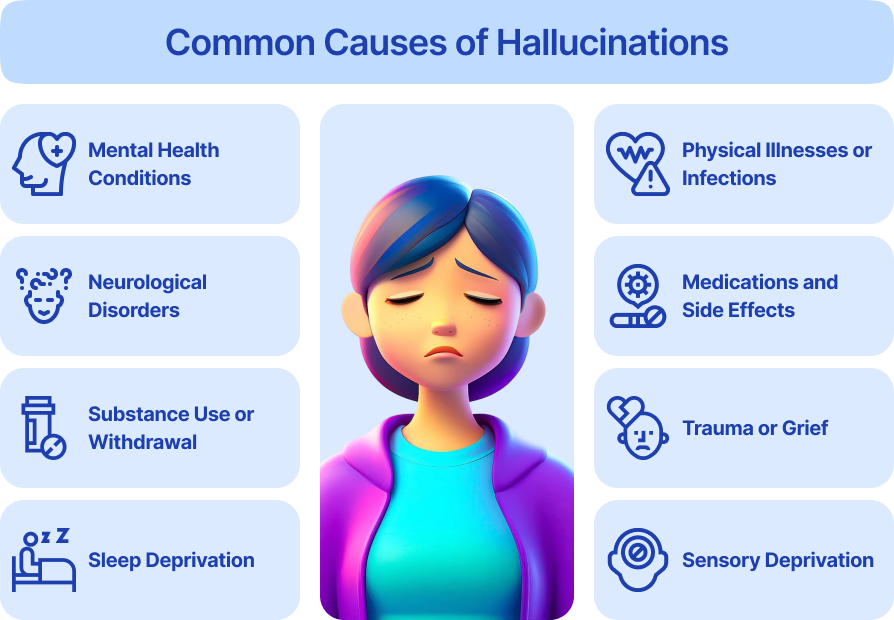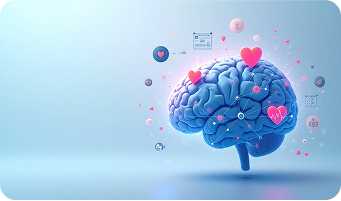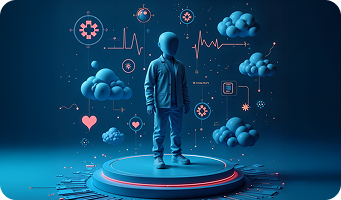AI and Hallucinations in Healthcare Field: A New Frontier in Patient Care

Technology is transforming the way we practice medicine, and one of the most influential developments is how artificial intelligence (AI) interacts with hallucinations. Hallucinations can be terrifying for individuals who experience them, but AI-powered technology solutions provide new mechanisms to comprehend and treat these conditions. We also must be mindful of the threat of misinformation.
This article will explore what hallucinations are, how AI can assist or hamper their control, and why healthcare professionals need to engage with technology. Let's begin!
What Are Hallucinations?
Hallucinations are sensations that are very real but actually produced by the mind. Think of seeing, hearing, or sensing things that don't exist; that's a hallucination. They can happen to any of our senses, causing confusion and distress. Knowing the nature of hallucinations is the beginning of dealing with them.
Various Types of Hallucinations
- Visual Hallucinations: When a person sees things that aren't there—such as shadows or shapes.
- Auditory Hallucinations: In this, individuals hear sounds or voices that don't exist. It can be quite disturbing.
- Olfactory Hallucinations: These are when one smells things that don't exist, such as flowers or smoke.
- Gustatory Hallucinations: People sometimes taste things like bad flavors that aren't in their food.
- Tactile Hallucinations: This is when a person feels sensations like bugs crawling on their body.
What Causes Hallucinations?

A number of causes can bring on hallucinations:
- Mental Health Illness: Disorders such as schizophrenia or intense depression can result in hallucinations.
- Substance Abuse: Alcohol, drugs, or withdrawal are also possible causes.
- Sleep Disorders: Lack of sleep can bring on hallucinations, particularly while falling asleep or waking up.
- Medical Conditions: Conditions such as epilepsy or migraines can also be a contributing factor.
- Medications: Some drugs can alter brain activity and result in hallucinations.
A Brief Idea AI Hallucinations
Now, let's discuss AI hallucinations. That is when artificial intelligence generates information that sounds real but is not. It's like when a person gives a good story that is not true. In medicine, this can be especially troubling because correct information is crucial to patient safety.
Why Does AI Hallucinate?
AI learns by analyzing patterns in data. Unlike humans, it can’t tell when it’s wrong, which can lead to errors. Here are some rare reasons why AI might produce unreliable information:
- Filling in the Gaps: When data is missing, AI might make things up to fill in the blanks.
- Overconfidence: Sometimes, AI will present false information as if it's a fact.
- Shortage of Actual Understanding:AI lacks the judgment and life experience possessed by human physicians.
Risks of AI Hallucinations in Medicine
AI hallucinations may cause significant issues, including:
- Incorrect Diagnoses: When AI produces imaginary medical results, patients may be treated improperly.
- Convincing Oneself of Non-Existent Conditions: Patients may be convinced they have conditions that don't exist.
- Delayed Care: Heavy dependence on AI may lead patients to wait too long for the treatment they require.
How AI Can Help with Human Hallucinations?
While there are dangers, AI does have some worthwhile applications in assisting individuals with hallucinations:
- Early Detection: AI-powered wearables and systems can assist in analyzing speech and conduct to detect the early warning signs of mental illness.
- Monitoring Treatment: AI can monitor how well medicines are functioning and keep patients on their treatment schedules.
- Virtual Support: AI chatbots can provide instant support and coping mechanisms for individuals in distress.
- Improving Diagnostics: AI can aid in the interpretation of medical images, enabling physicians to detect problems concerning hallucinations.
- Human Supervision: Physicians must always vet AI outputs to avoid misinformation and safeguard patients.
Establishing Trust Between AI and Healthcare Providers
In utilizing AI within the healthcare technology environment, caution needs to be employed:
- Always Check: Don't automatically accept AI-sourced data; always validate it against a medical record.
- Exercise Caution: Although AI may help complete menial jobs, human check-in is of primary importance before making decisions.
- Keep On Verifying: Even if the AI seems trustworthy, continuous checking of outputs needs to happen.
Promoting Better Patient Care in Partnership!
AI can advance healthcare IT dramatically, particularly in diagnosis and the control of hallucinations. Just like hallucinations of human beings are handled with much attention, so too should AI-created information be kept under surveillance. With combined effort, health experts can test AI suggestions and see to it that patients obtain optimal treatment.
When we merge human intelligence and the analytical powers of AI, Helius Wellness helps build a more efficient and safer healthcare system. Such a collaboration can assist all of us to deal better with hallucinations and other intricate health problems.
Popular Blogs

Agentic AI-Driven Healthcare Revolution
Agentic AI in healthcare for personalised care and real-time decisions.

Artificial Intelligence in Healthcare: A New Approach t...
Chronic disease care with AI wearables, remote monitoring, and more.

AI and Hallucinations in Healthcare Field: A New Fronti...
Know how AI supports the detection and treatment of hallucinations.
